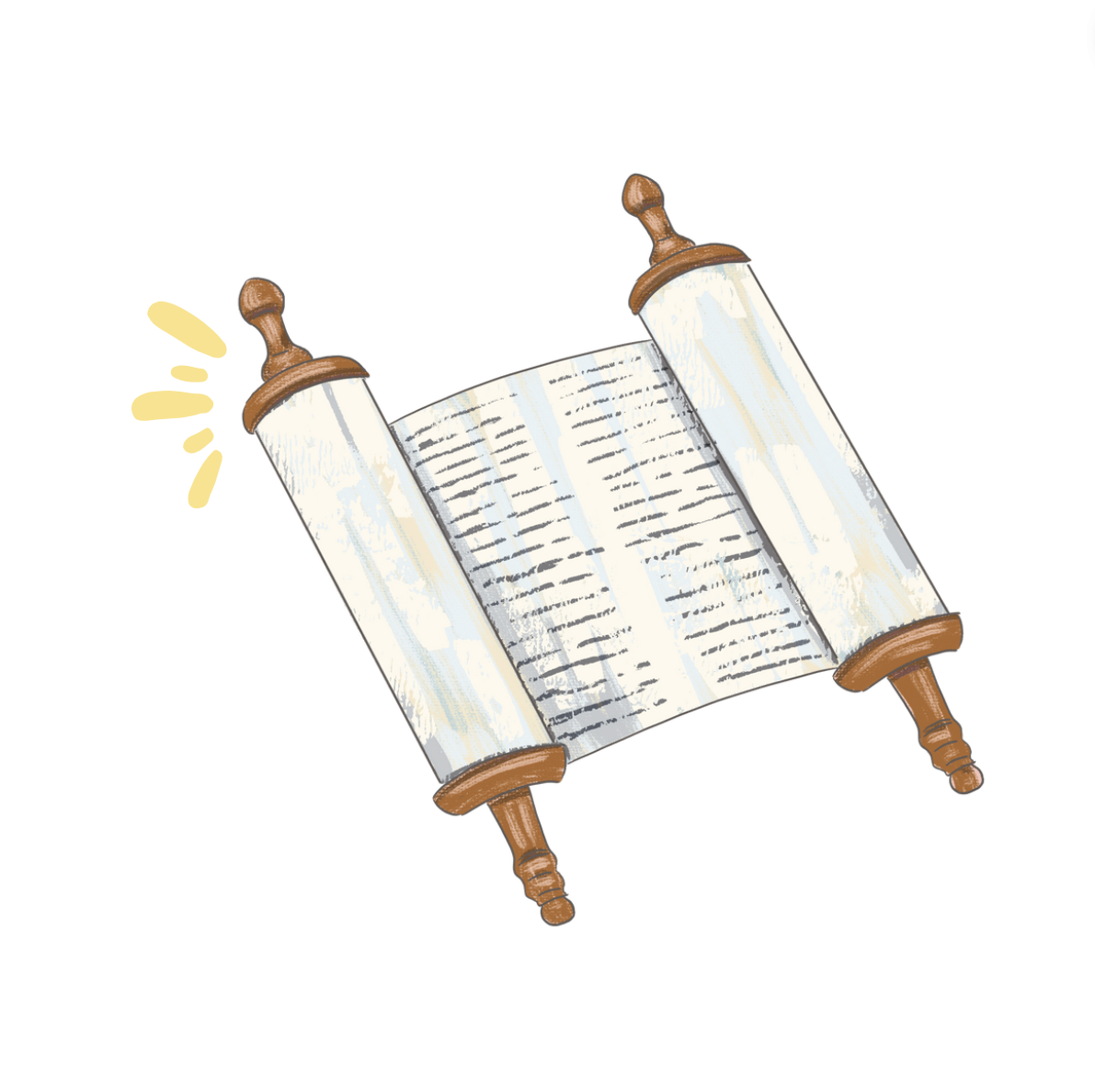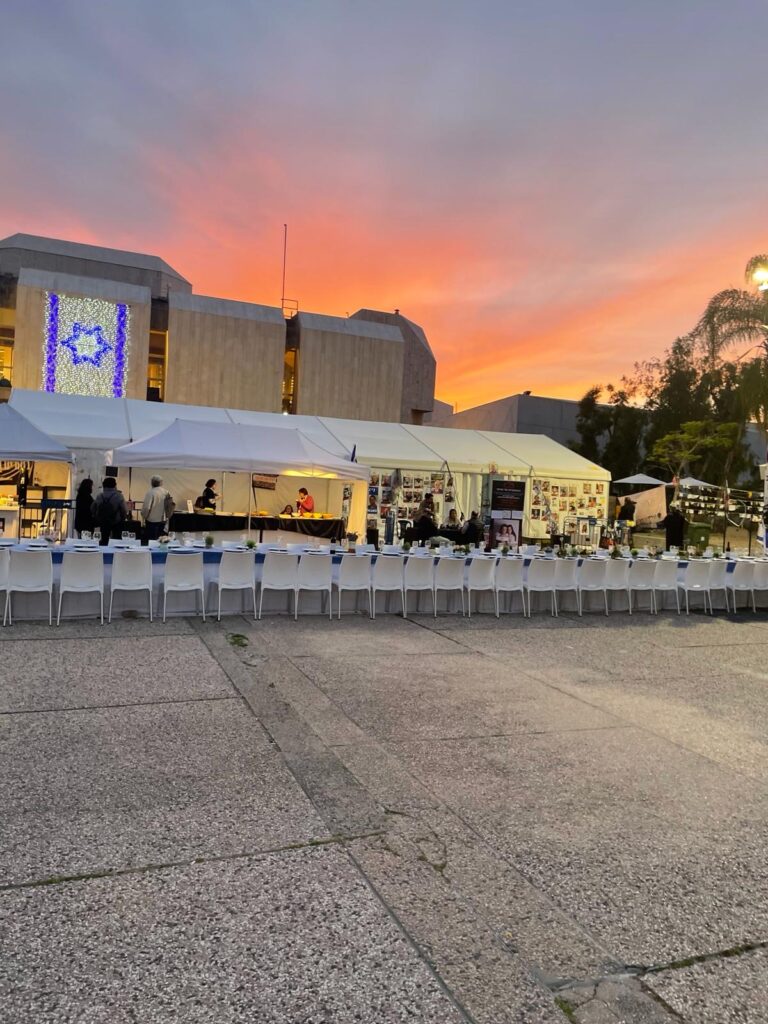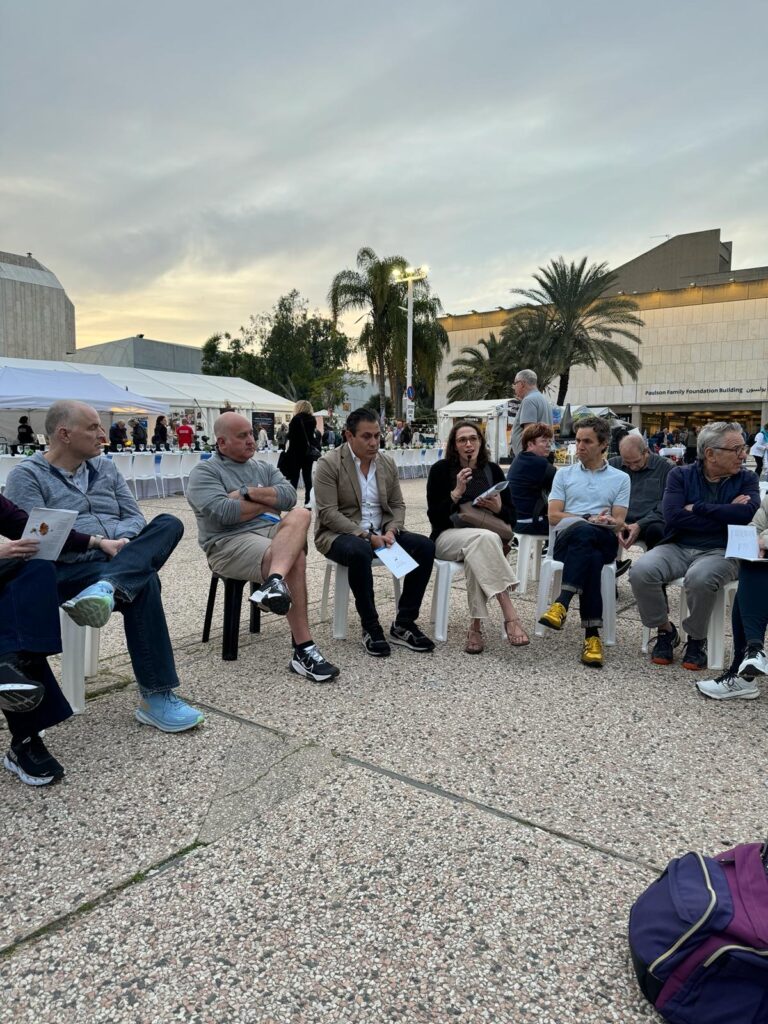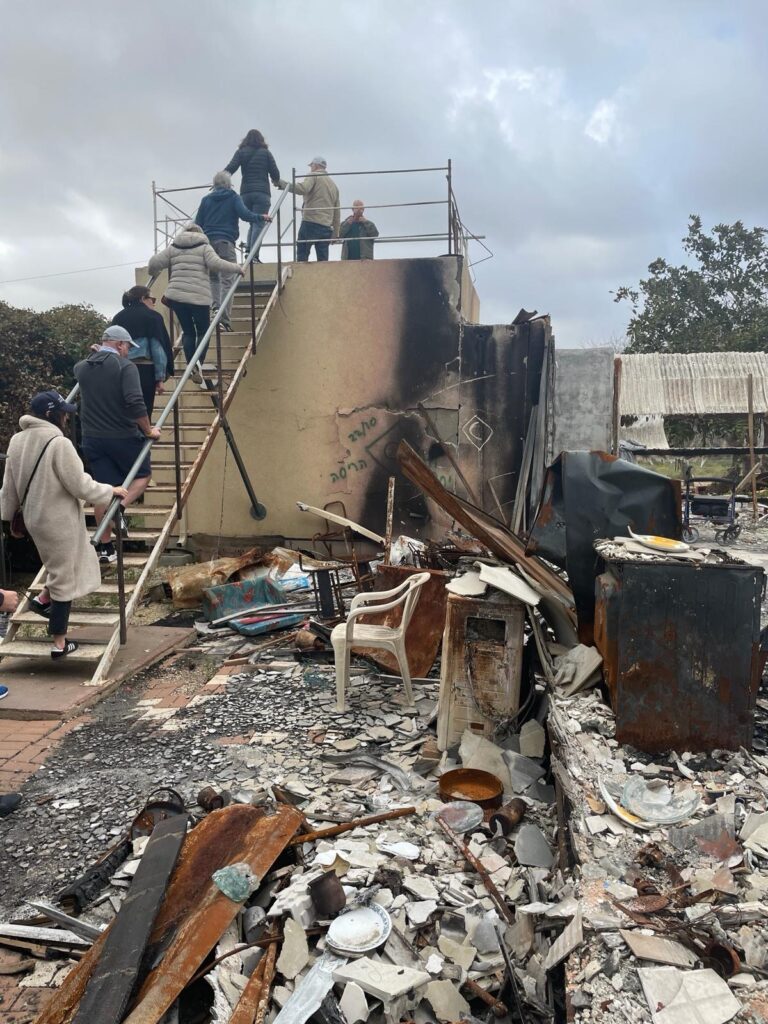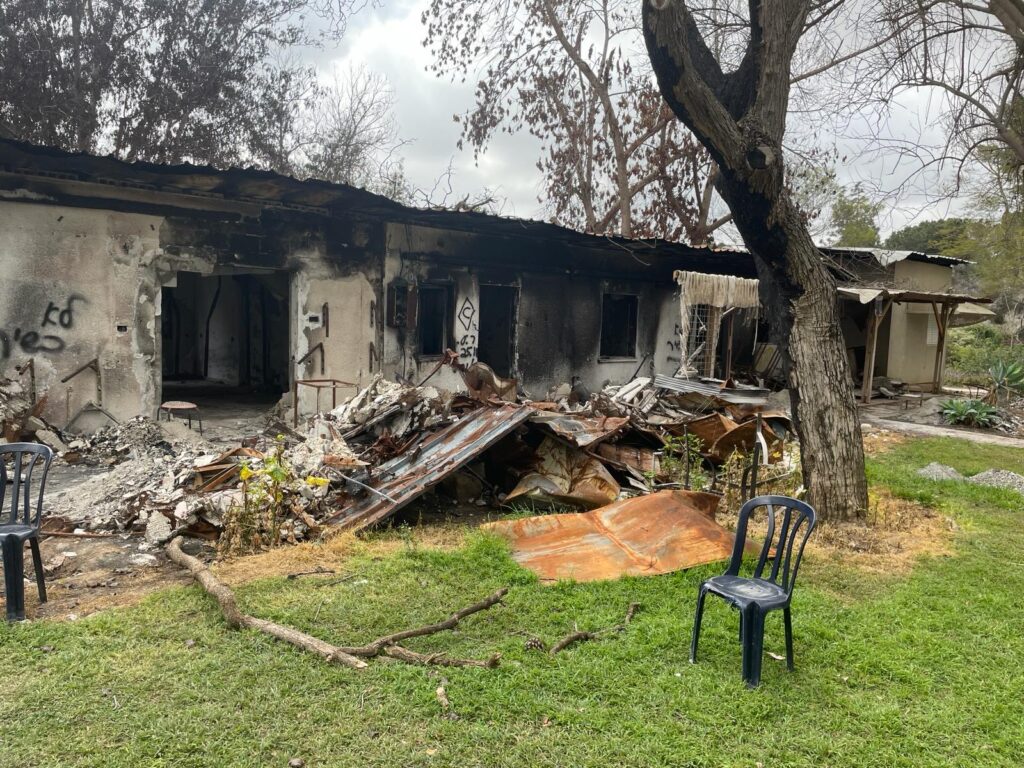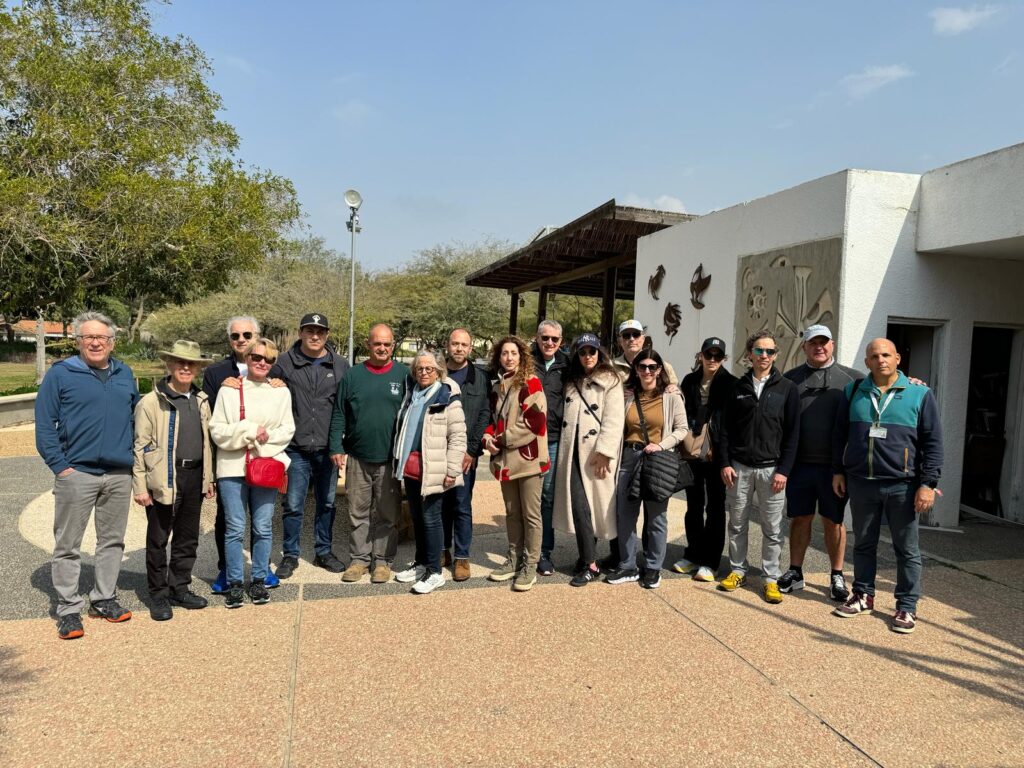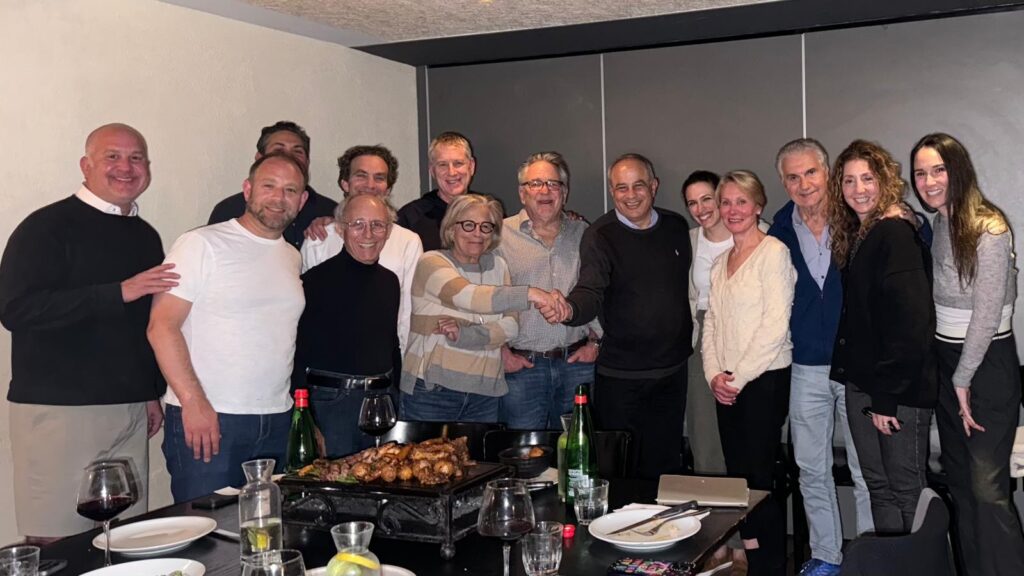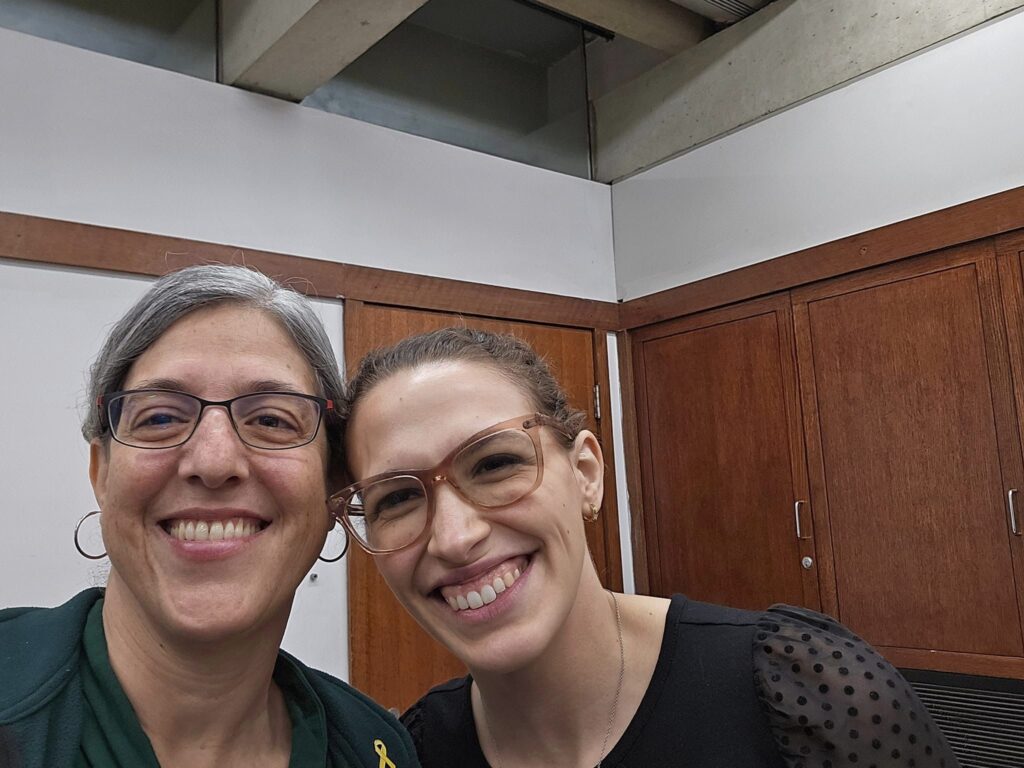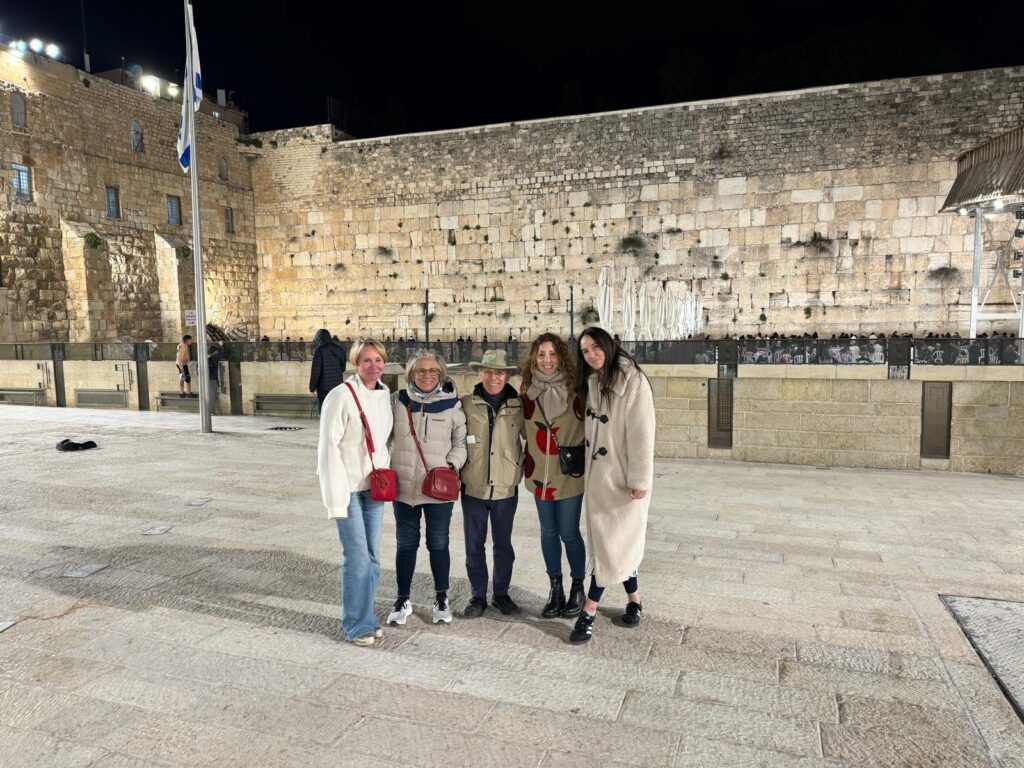This week, our D’var Torah has been written by Daphne Logan, Director of the Hebrew School Project. It is a modified version of the letter she sent to HSP families after she returned from a two-week trip to Israel in February.
The Jewish people go by many names: Am Yisrael (the nation of Israel), the Israelites, and the People of the Book, to name a few. This last epithet provides a special insight into the story of the Jewish people. Our story is one of survival and resilience throughout the ages, and our unbroken ability to adapt and thrive is rooted in our storytelling.
In their research on children and families after the attacks of September 11, Drs. Marshall Duke and Robyn Fivush found that having a strong family narrative is the key to cultivating resilience. They identified a particular type of narrative—the oscillating family narrative—as the backbone of resilience. In the oscillating narrative, we recount our family’s story as a succession of ups and downs. We acknowledge that our story does not have a “happily ever after” ending; rather, we recount each of the times that we have been able to overcome obstacles and rebuild. By framing our family narrative as such, children learn to expect that crises are a part of life. When faced with catastrophe, they are prepared—they know that just as in the past, they will get through it, and they will be okay, because that is the story of their family.
When I came upon the writing of Drs. Duke and Fivush, I was reminded of the lyrics to Vehi Sheamda, a song that is found in the Passover Haggadah, which we will be reading again very soon.
וְהִיא שֶׁעָמְדָה לַאֲבוֹתֵיֽנוּ וְלָנֽוּ. שֶׁלֹא אֶחָד בִּלְבָד, עָמַד עָלֵיֽנוּ לְכַלּוֹתֵנֽוּ. אֶלָּא שֶׁבְּכָל דּוֹר וָדוֹר, עוֹמְדִים עָלֵיֽנוּ לְכַלּוֹתֵנֽוּ. וְהַקָּדוֹשׁ בָּרוּךְ הוּא מַצִּילֵנוּ מִיָּדָם.
And this is that which sustained our ancestors and us, that it is not one alone that stood up against us to destroy us, but that in each generation there are those standing up against us to destroy us, and the Holy One saves us from their hand.
This is the story of our family, the Jewish people—a story of overcoming hardship, a story of perseverance, and a story of triumph. We know that we have faced adversity before, and we know that we will come out the other side when we face it again, and that we will thrive.
It has been nearly a month since I returned from Israel, where I was blessed to spend several days with family and friends, and to participate in an 8-day intensive program for leaders in North American Jewish educational institutions. Our group sought to examine Israel post-October 7, which has become a flashbulb memory in the collective Jewish consciousness, and to begin to explore how education should adapt to reflect not only a changed Israel, but a changed Jewish world.
Here are some of the experiences I participated in as a member of this cohort:
- Visiting the Nova Music Festival grounds, the site of the initial massacre by Hamas on October 7
- Learning from Adv. Ayelet Razin Bet Or about the gender-based violence that took place on October 7, and that has continued since
- Visiting the town of Ofakim, which was attacked on October 7, and meeting with school principals, teachers, and high school students – the high schoolers led a tour of the neighborhoods that were attacked, and told the stories of their community heroes
- Meeting with members of kibbutzim who have been evacuated from the Gaza Envelope, including Kibbutz Nir Am, with whom we shared a hotel in Tel Aviv
- Visiting a temporary school that has been set up for evacuated children, some of whom were formerly held hostage in Gaza
- Visiting and volunteering with an Israeli Bedouin community
- Learning from Mohammed Darawshe about the relationship between Jewish and Muslim Israelis, and the reality of Muslim Israelis today
- Spending time at Hostage Square and meeting with family members of hostages
- Visiting the recently dug graves of soldiers at Har Herzl (Israel’s military cemetery), and meeting with Sarit Zussman, the mother of Ben Zussman z”l, a recently fallen soldier (you can read Ben’s final letter to his family here).
Though Israelis are intimately familiar with collective loss and trauma, every individual in Israel is now grappling with a uniquely excruciating sense of loss, shock, and betrayal. There are enduring communal wounds left from the brutal attacks and destruction that took place on October 7, and there is also the searing pain of the ongoing fighting, of the soldiers and civilians who have died in Gaza and throughout Israel, and of the hostages who are still in captivity. At the same time, the Israel that I saw on this trip is as beautiful, creative, unified, resilient, and tireless as before, and this nation prevails.
Even while we hold onto and respond to the array of legitimate reactions that are coming up at this moment—pain, anger, sadness, betrayal, perhaps even utter confusion or disgust—there is one permeating message that I have carried with me. A Jewish identity defined by opposition to others is not only unsustainable, but untransferable. This kind of Judaism will not enrich our lives, nor can it survive the passage from one generation to the next. We need to hold onto and elevate all of the ways that our Jewishness provides a sense of belonging, informs our ethics, nourishes our souls, and cultivates love and unity.
And even in this challenging moment—especially in this challenging moment—we must lead with love and hope. We must continue to tell our family narrative as one in which we rise to the occasion, support each other, and continue to celebrate Jewish life. As I return to life in Tribeca, I feel affirmed in our community’s continued commitment to instilling our learners with a Judaism founded in positive values, and to helping our learners draw strength and resilience from their Jewish identities.
I pray that all of the remaining hostages are returned home immediately, and that peace is speedily restored to the land of Israel and to all of its inhabitants.
Shabbat shalom.
Daphne Logan, HSP Director

